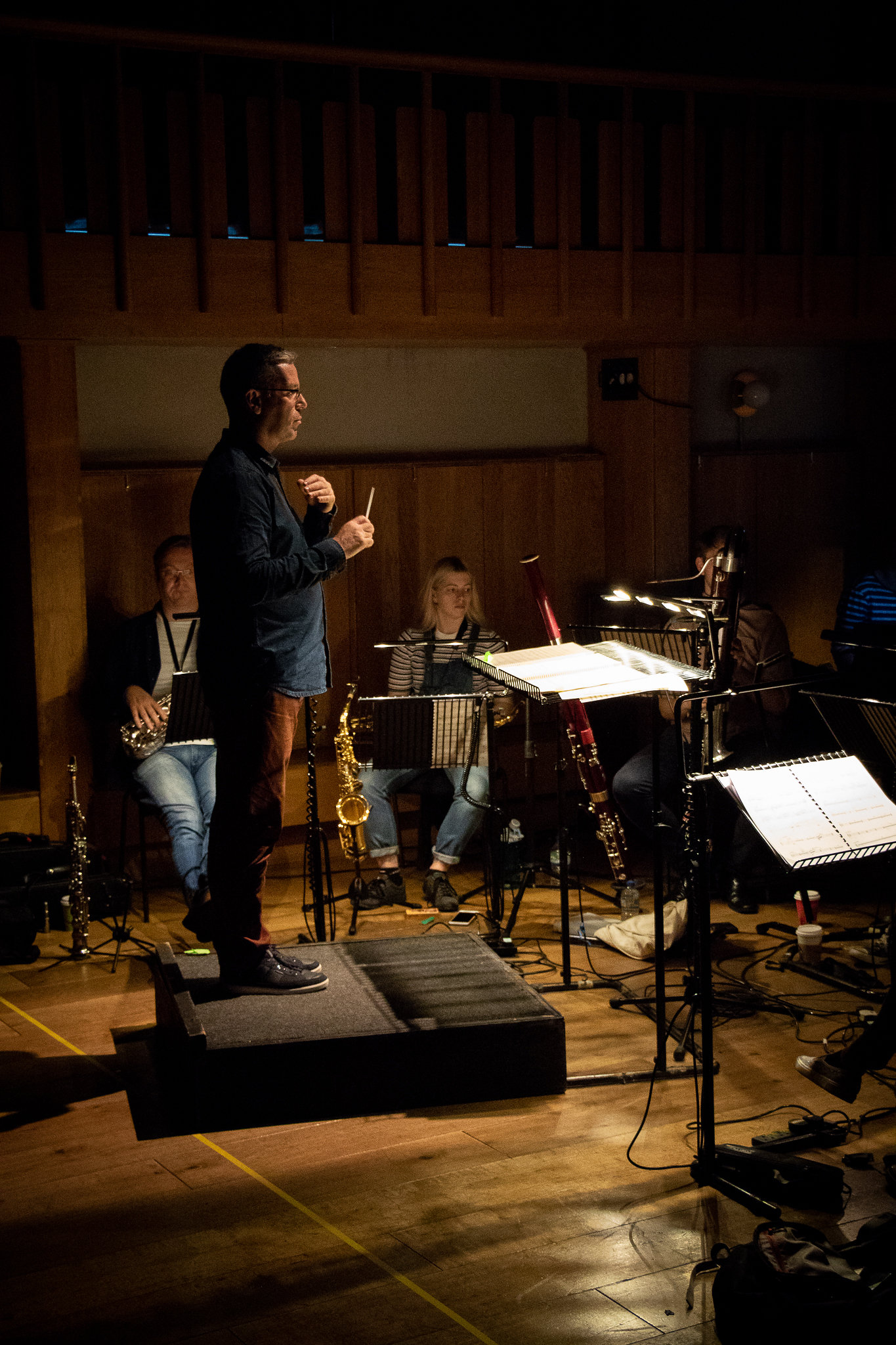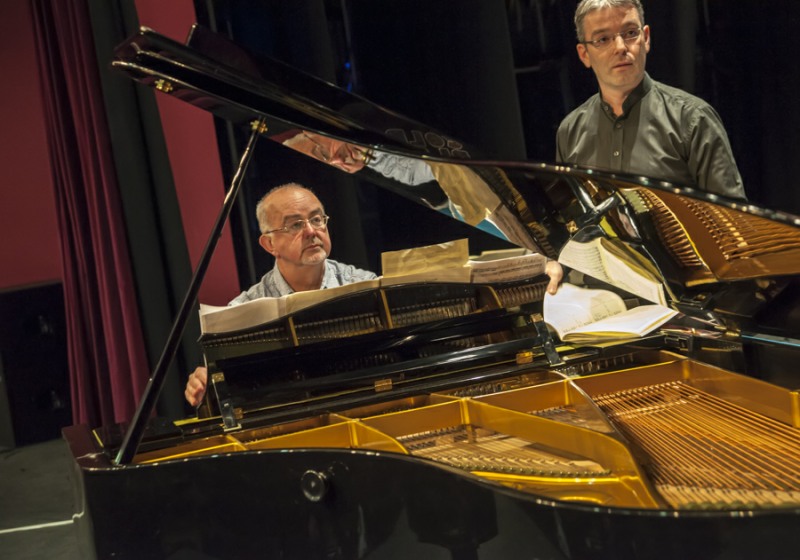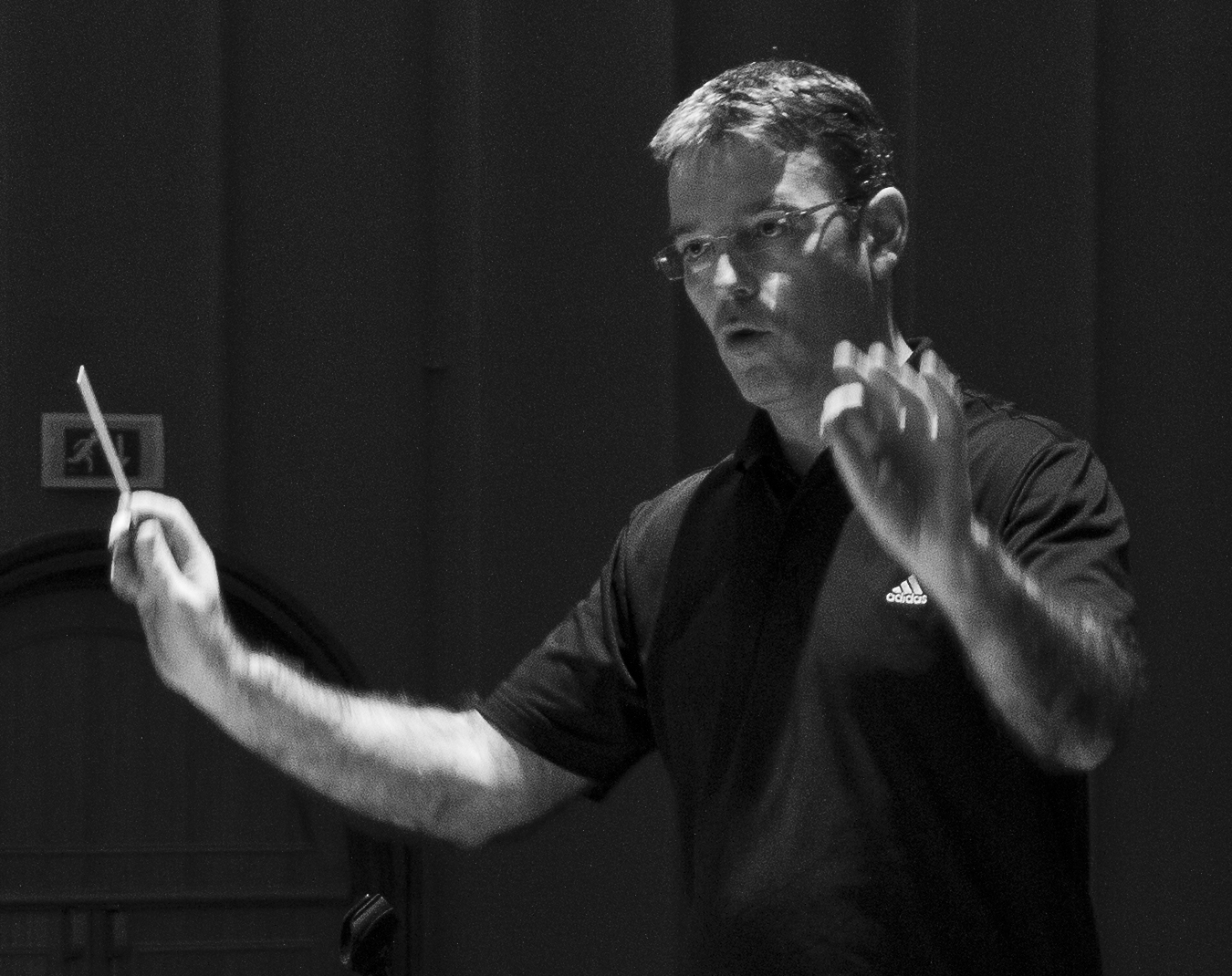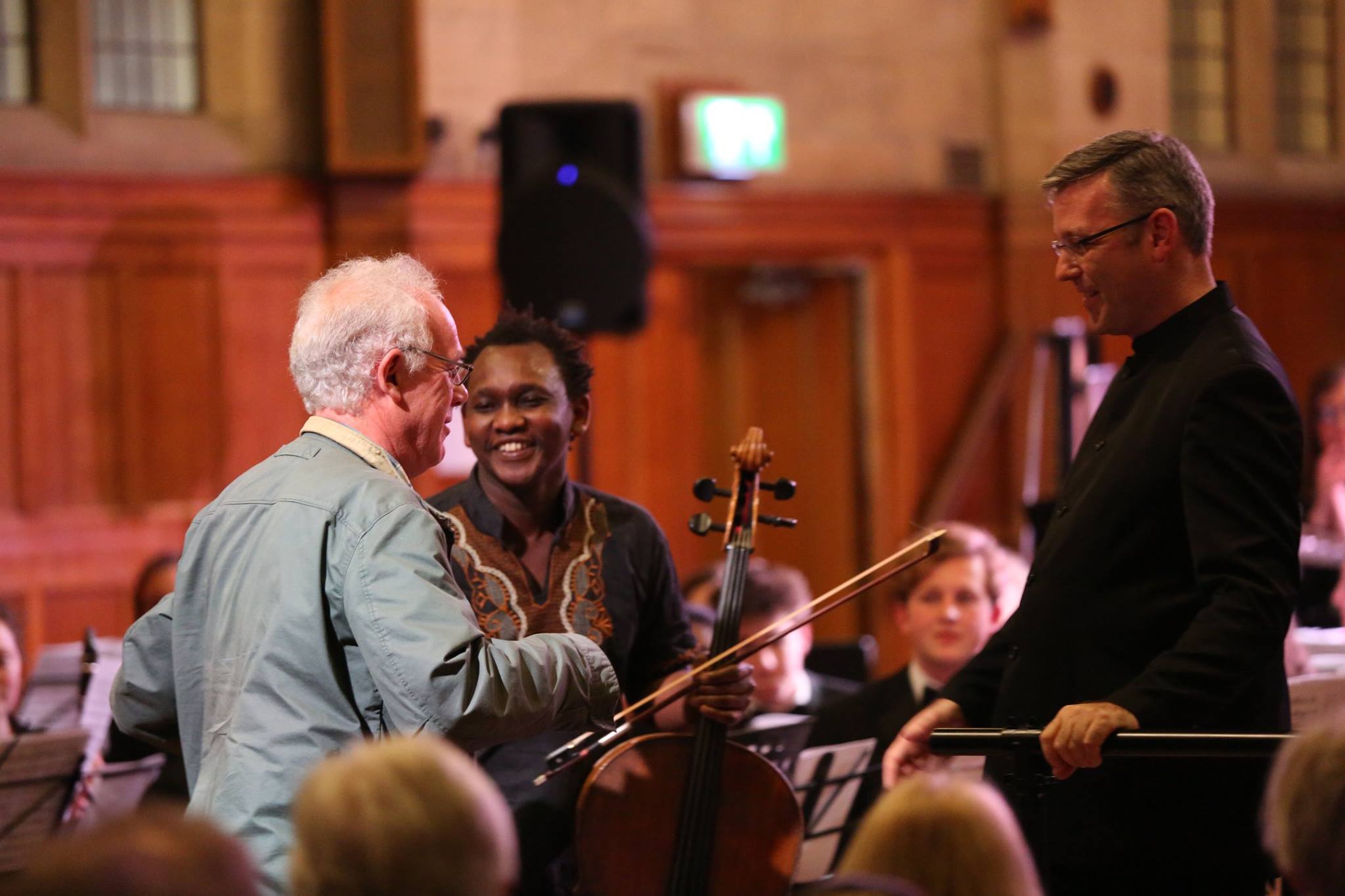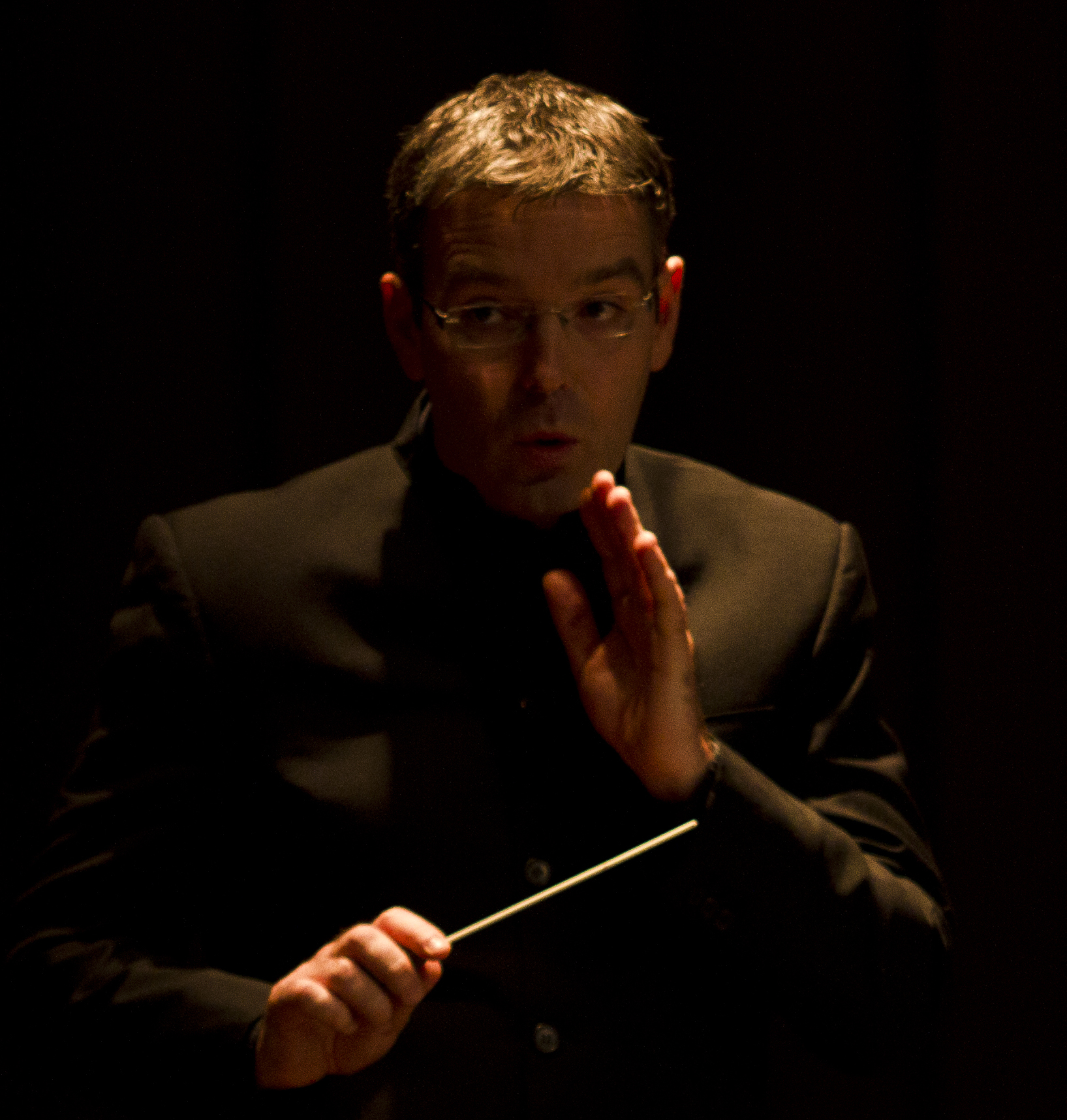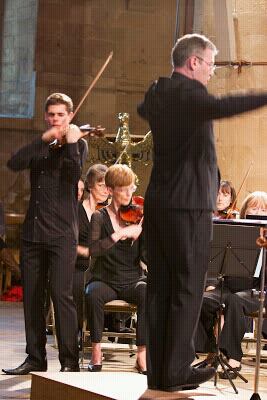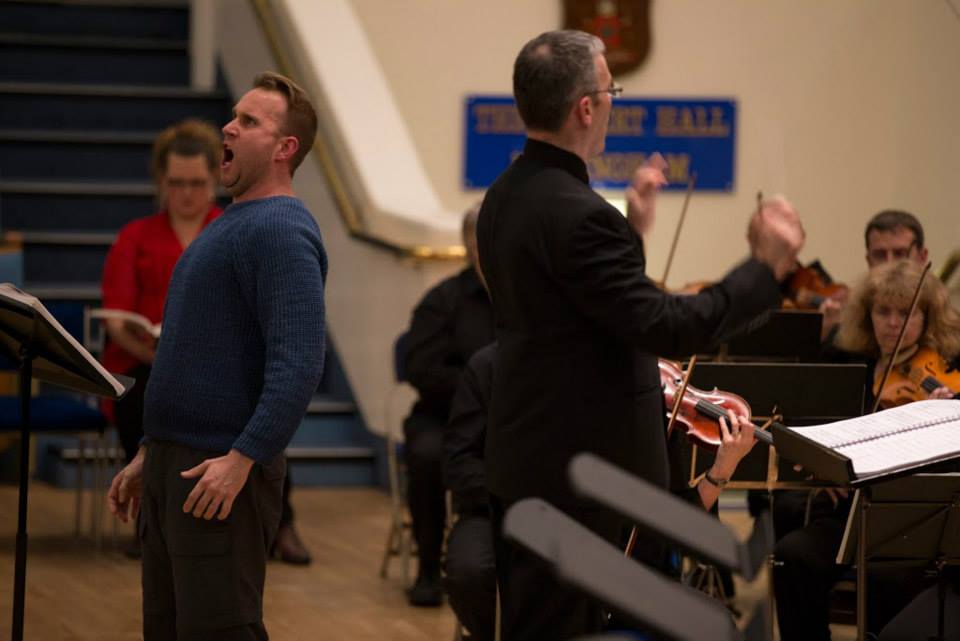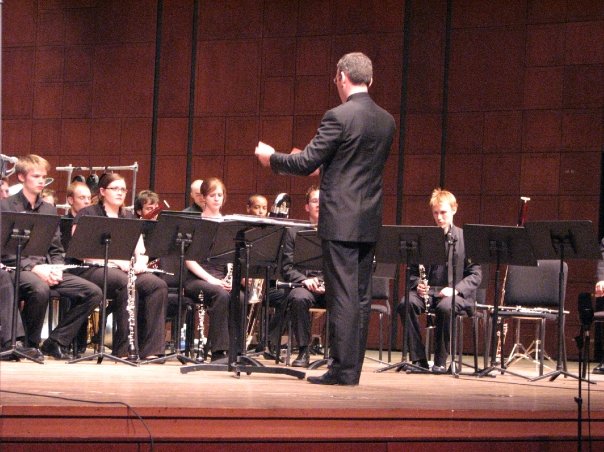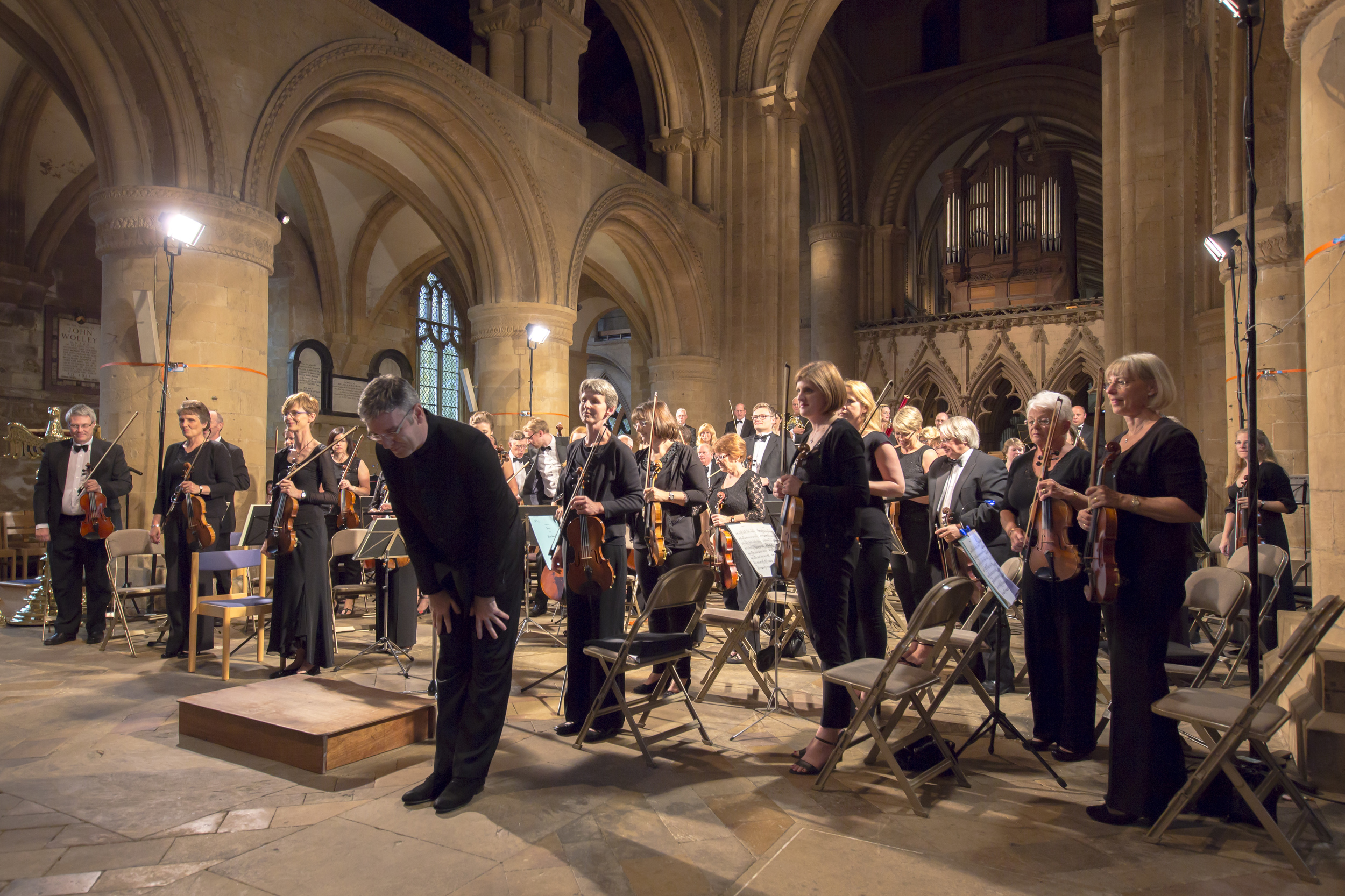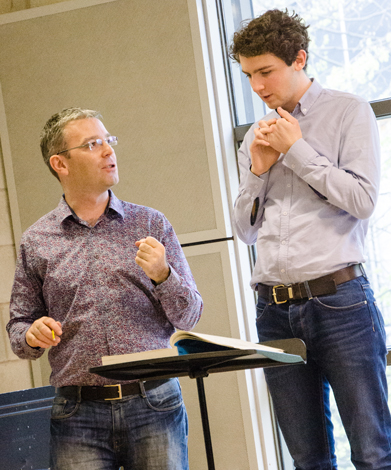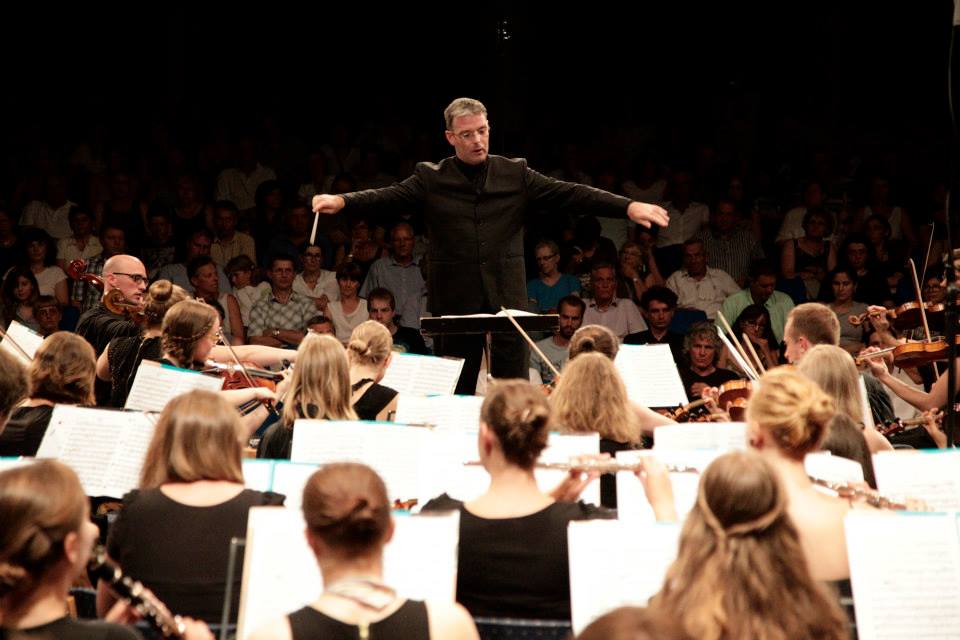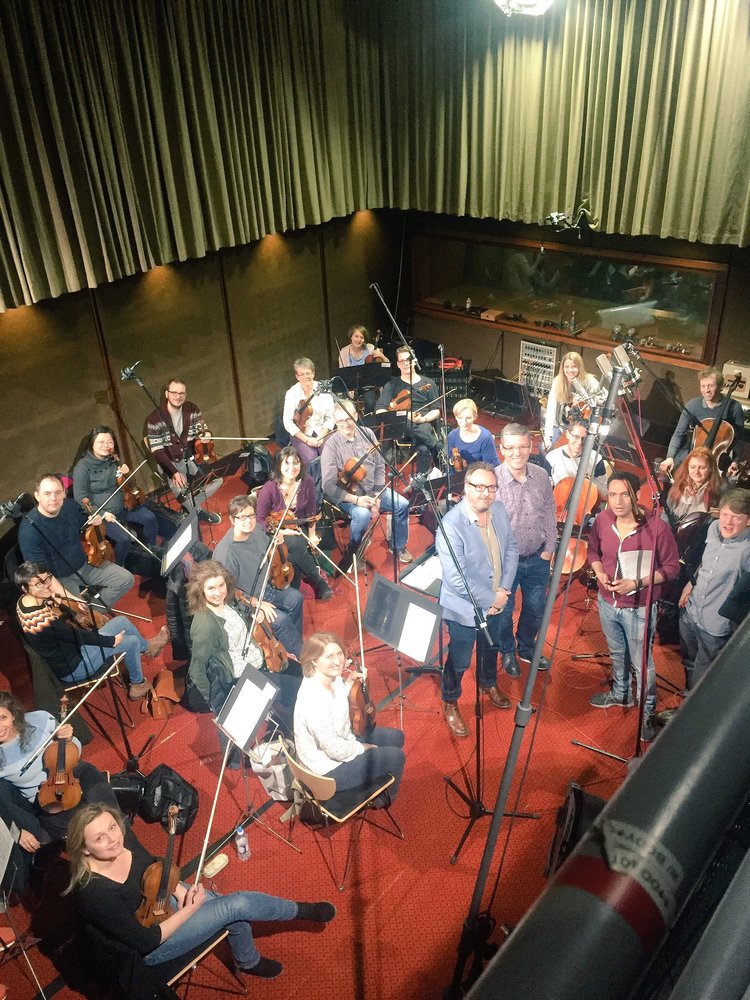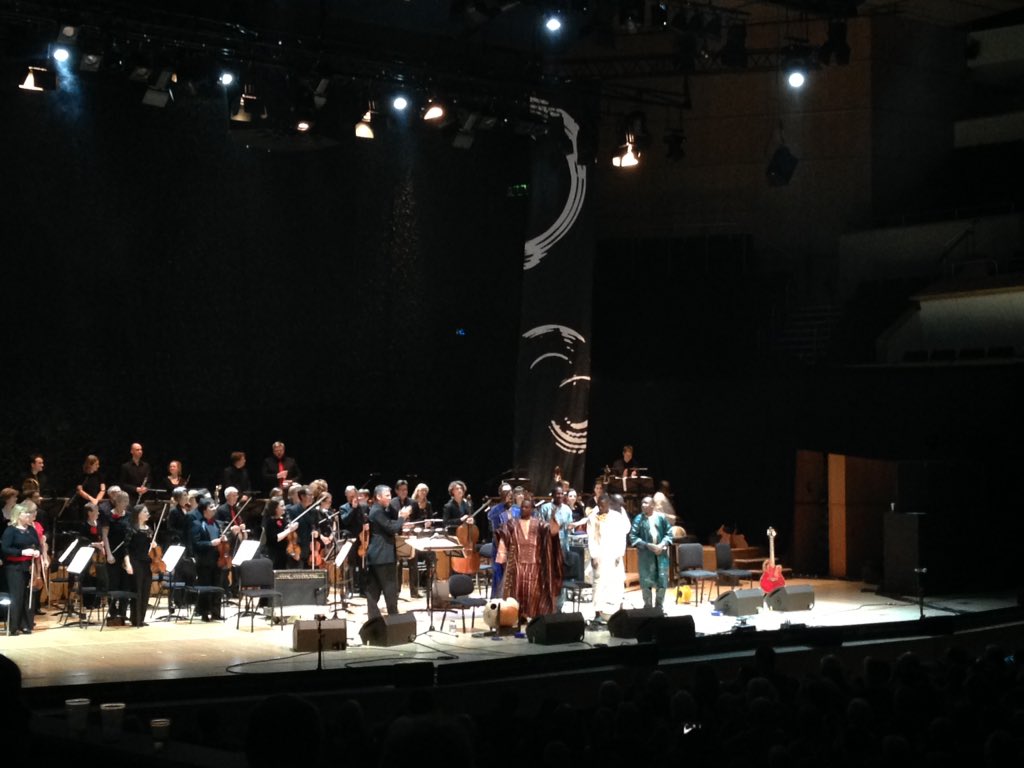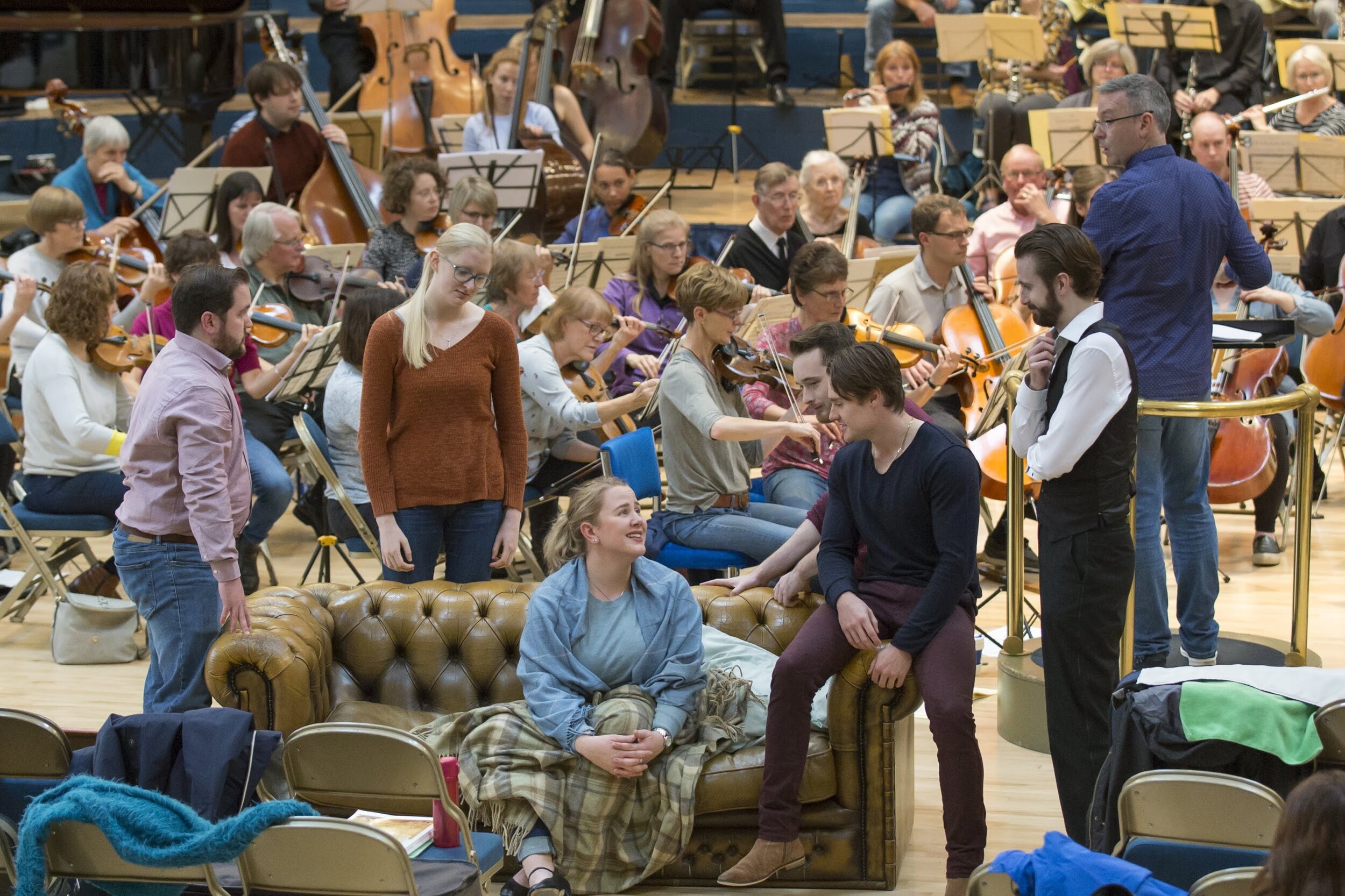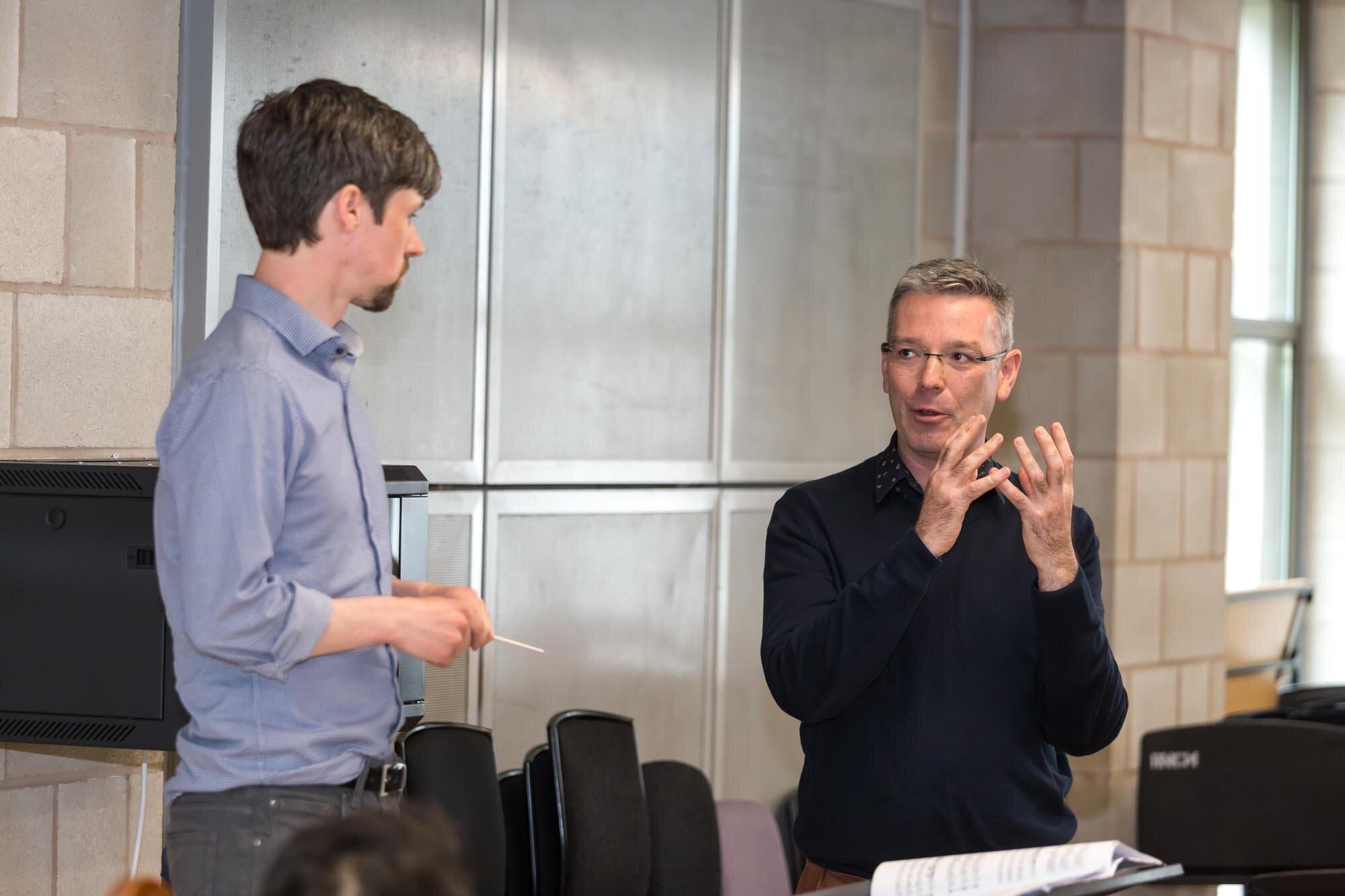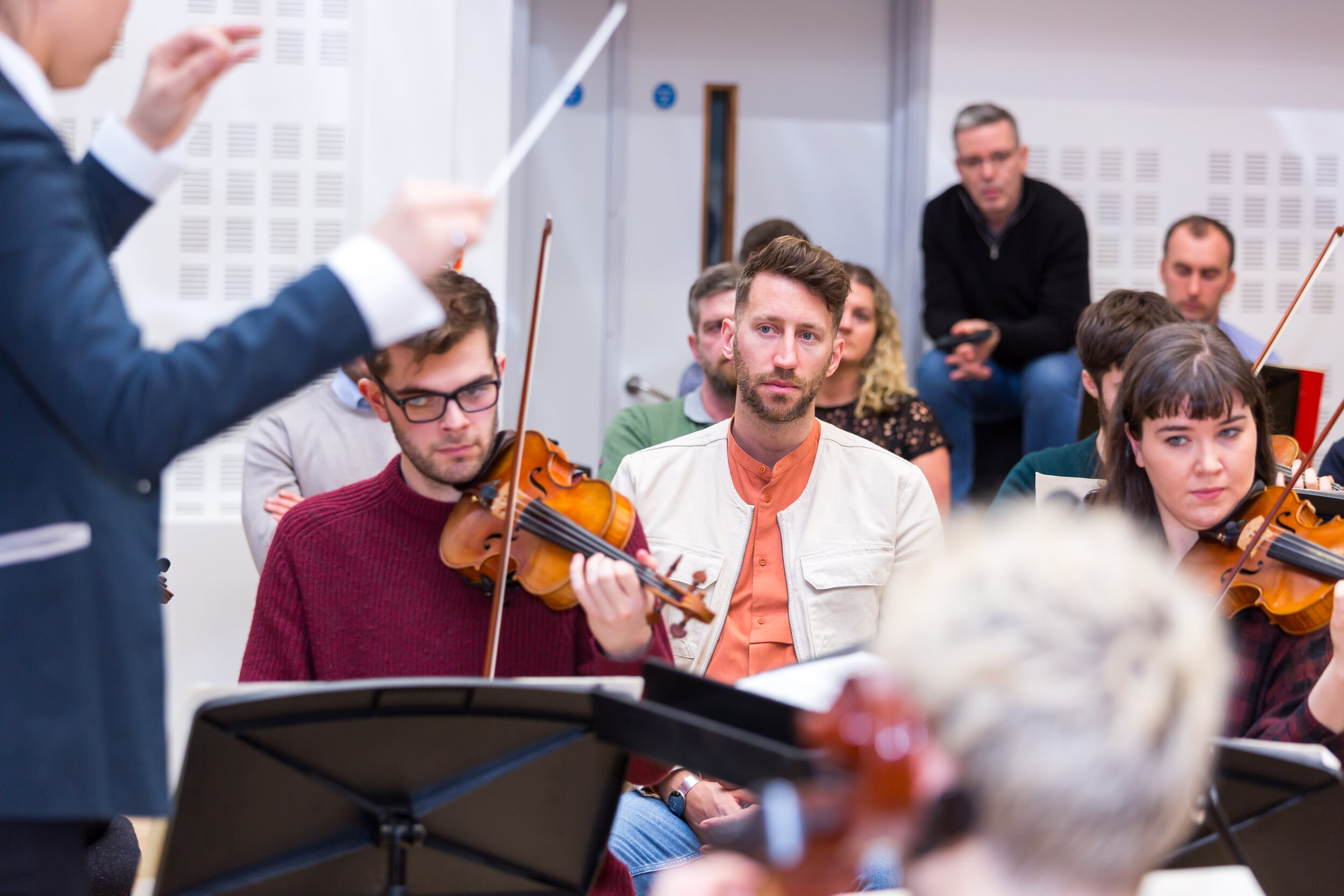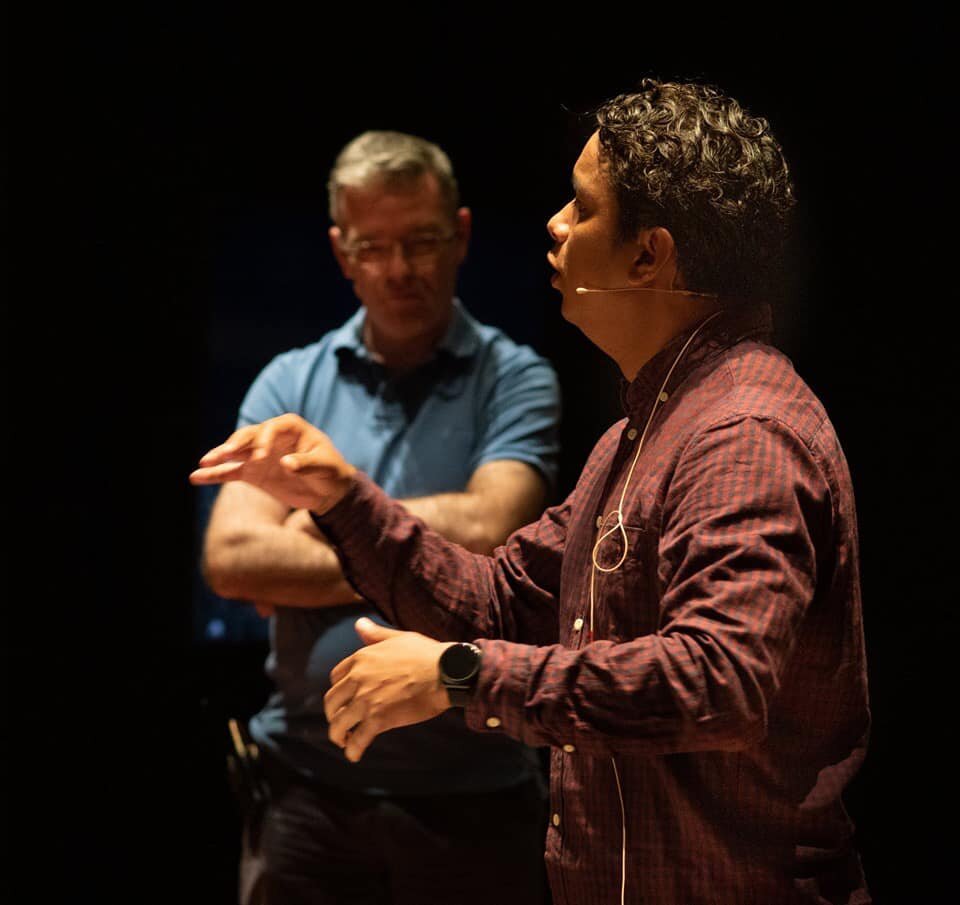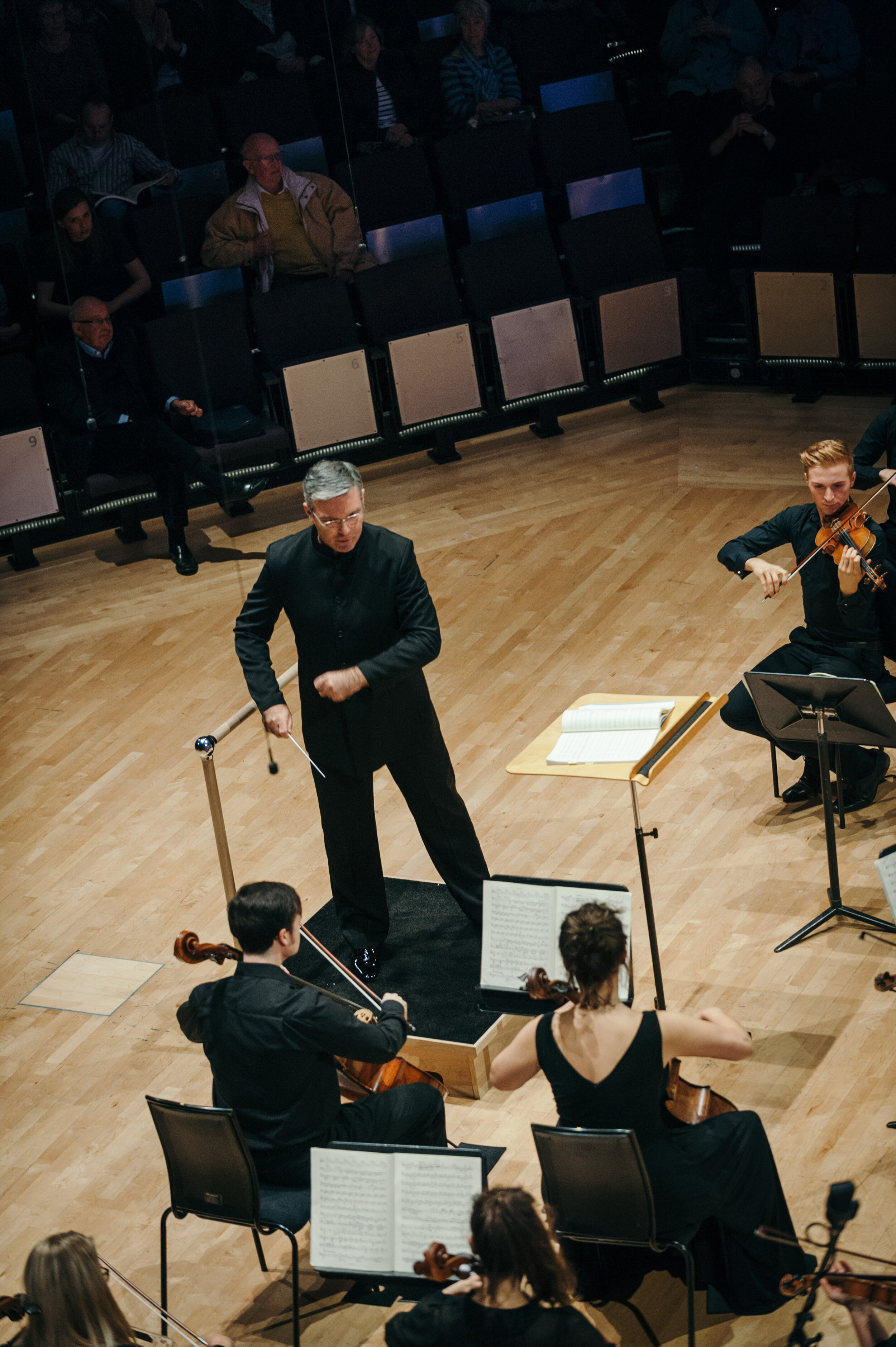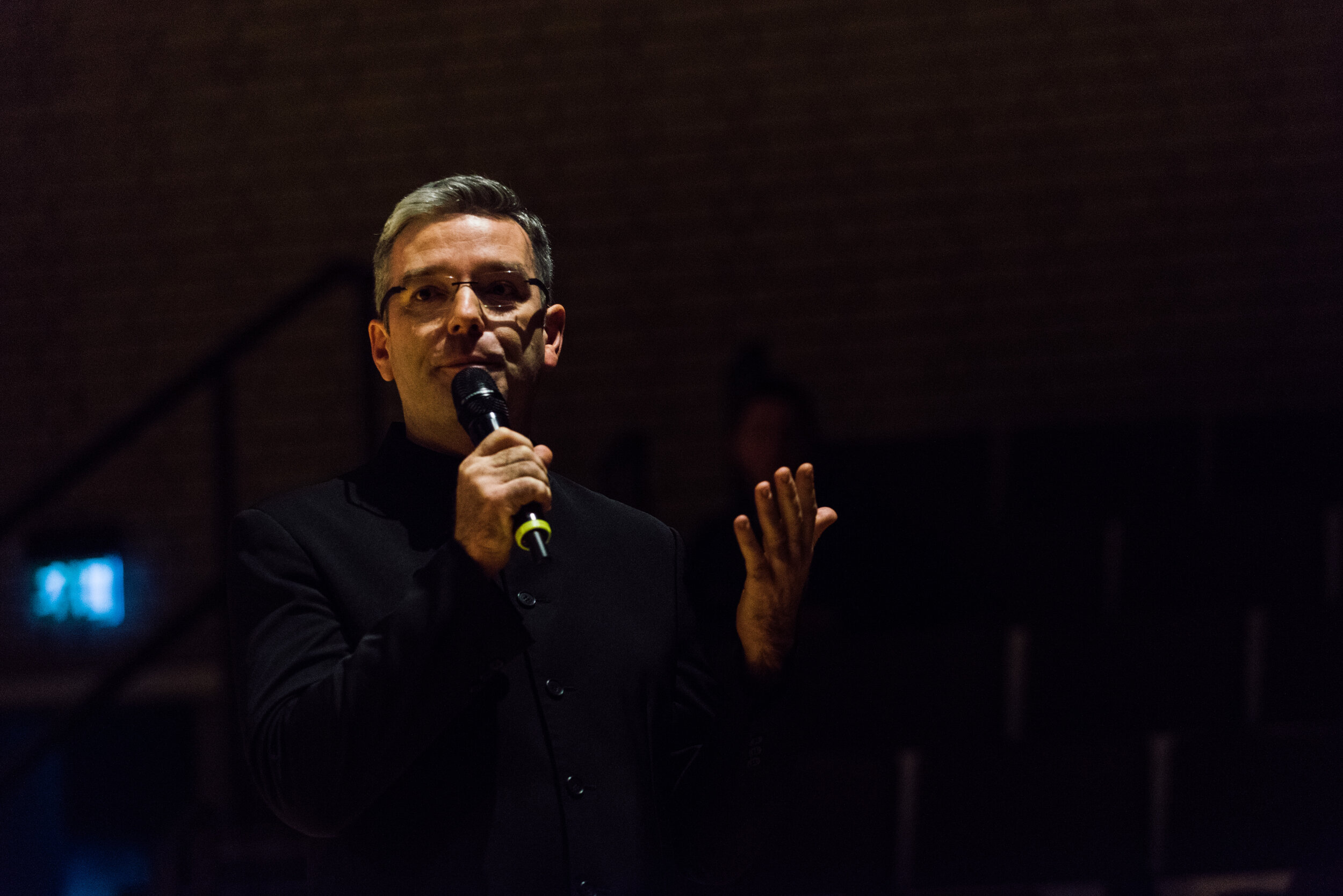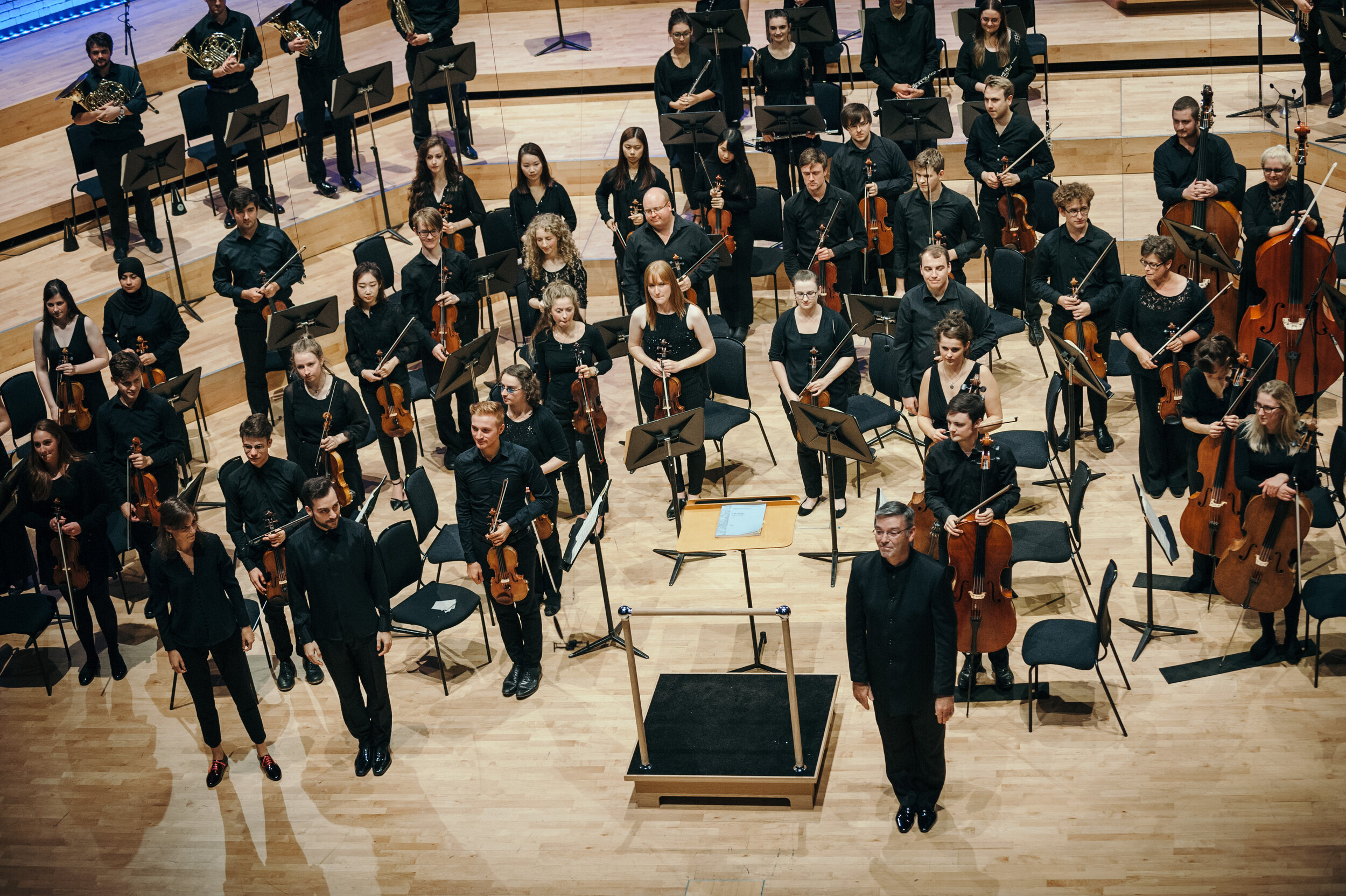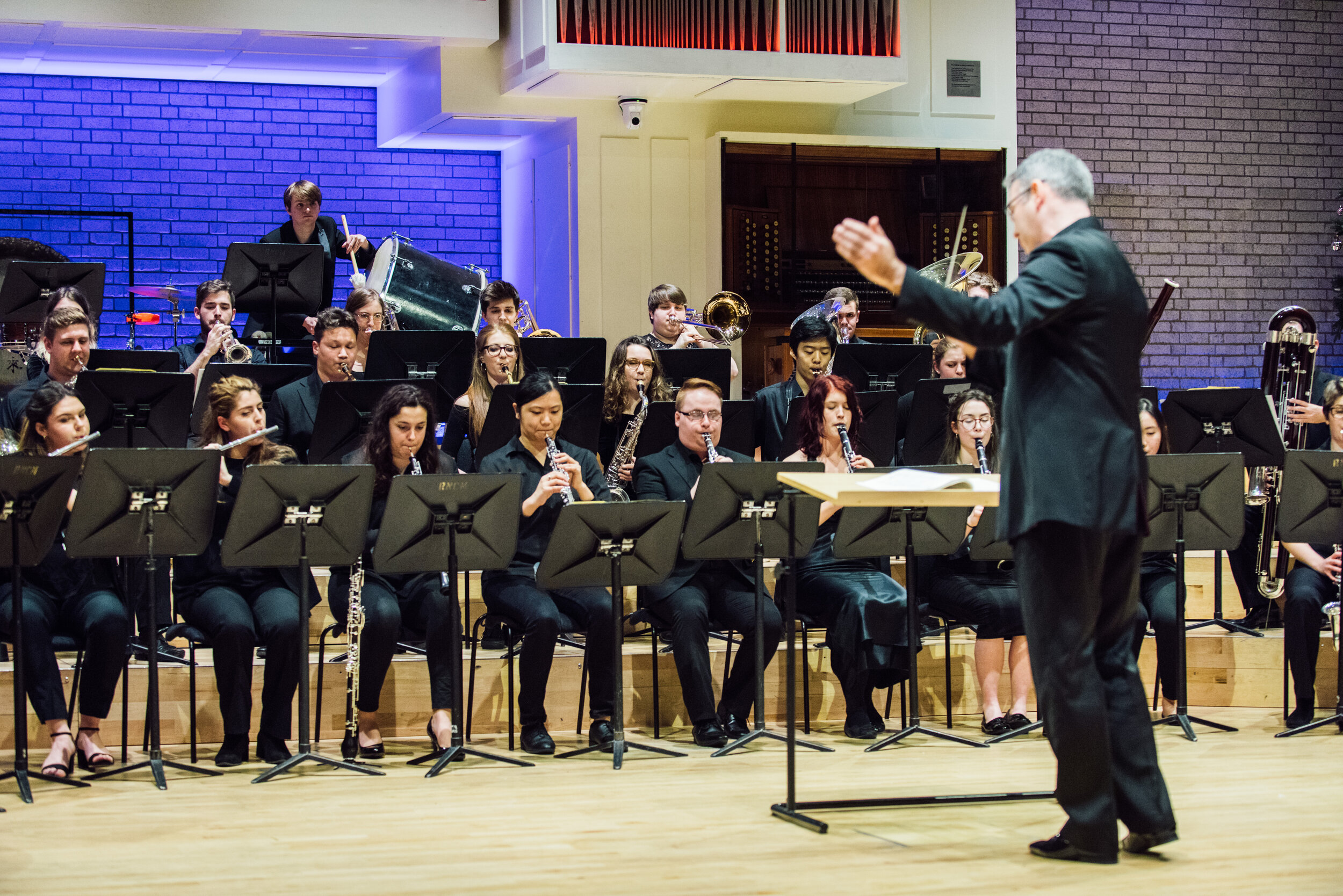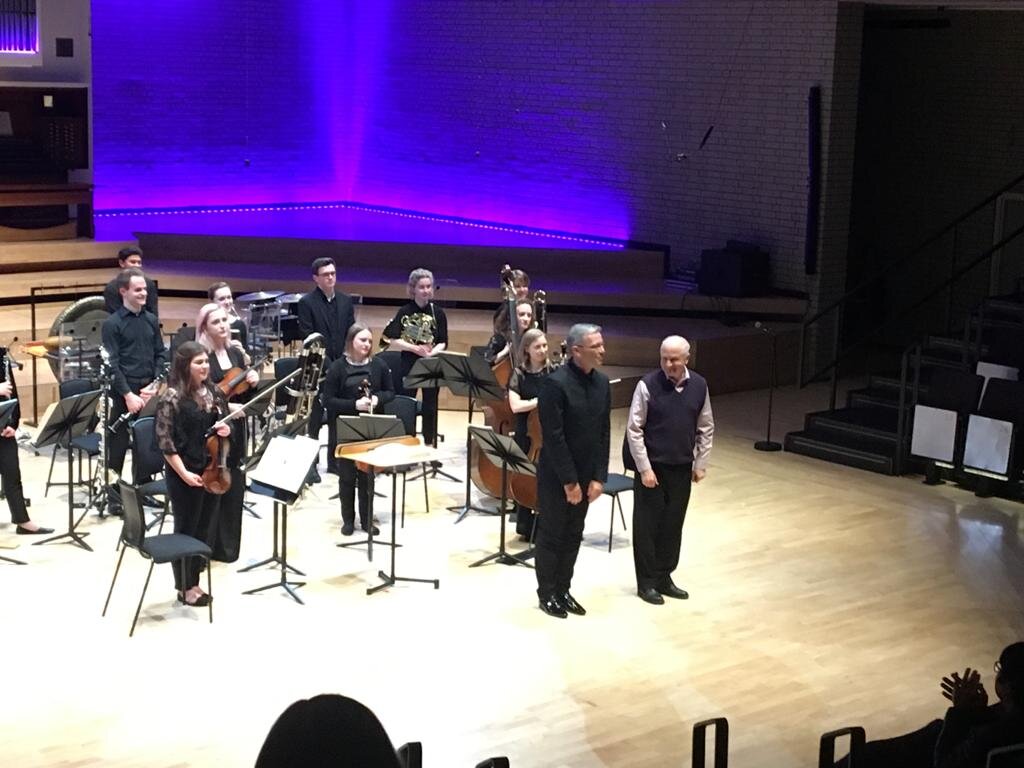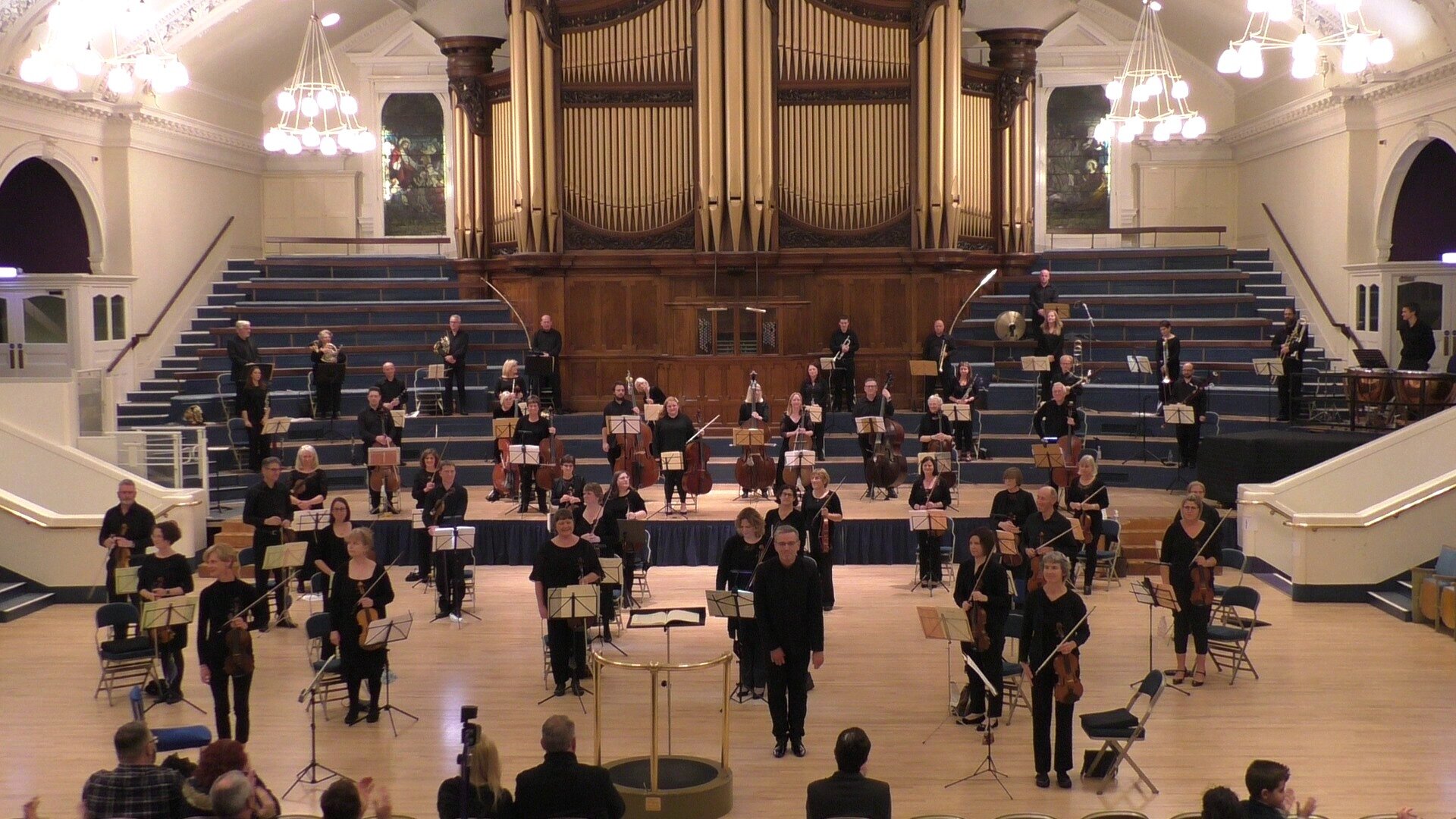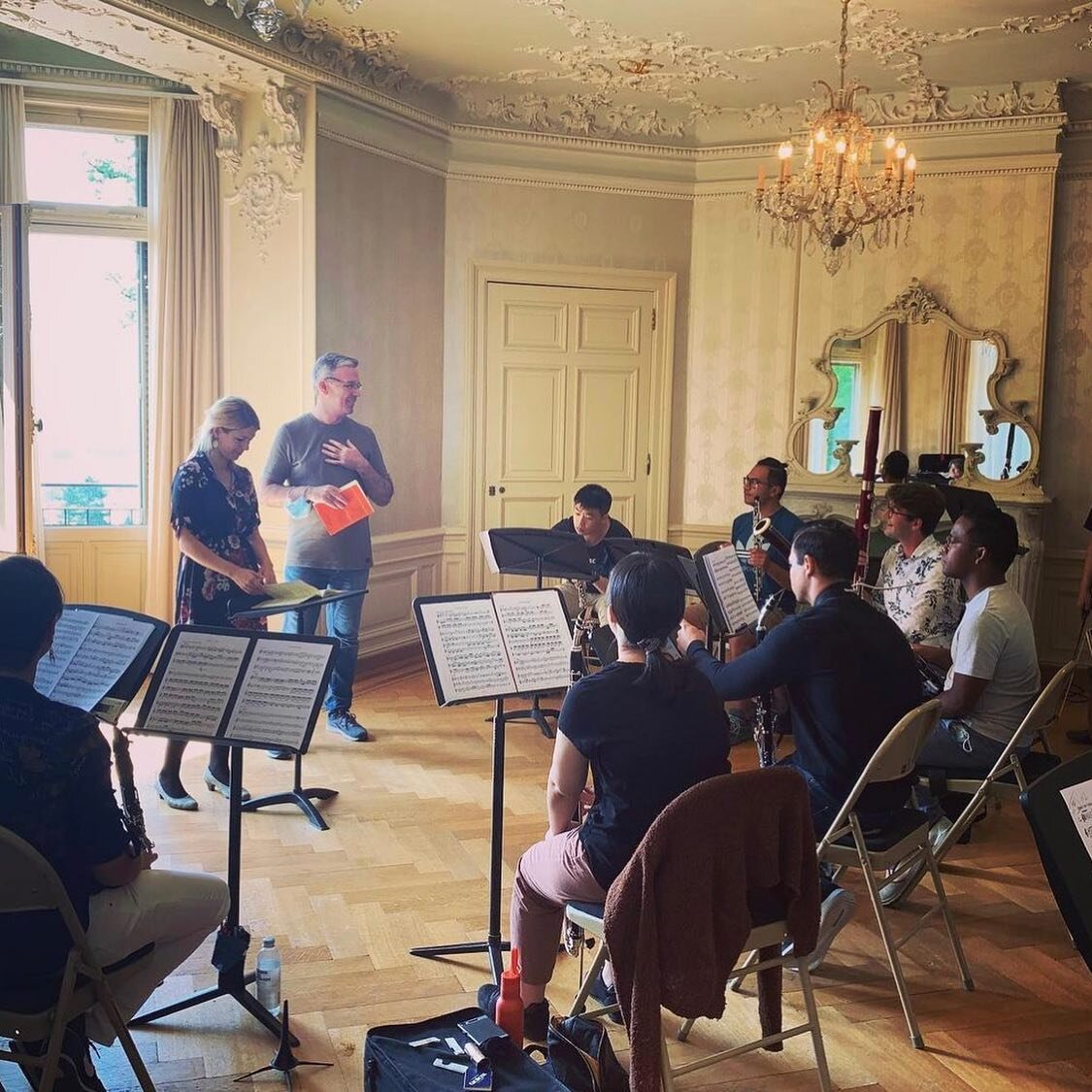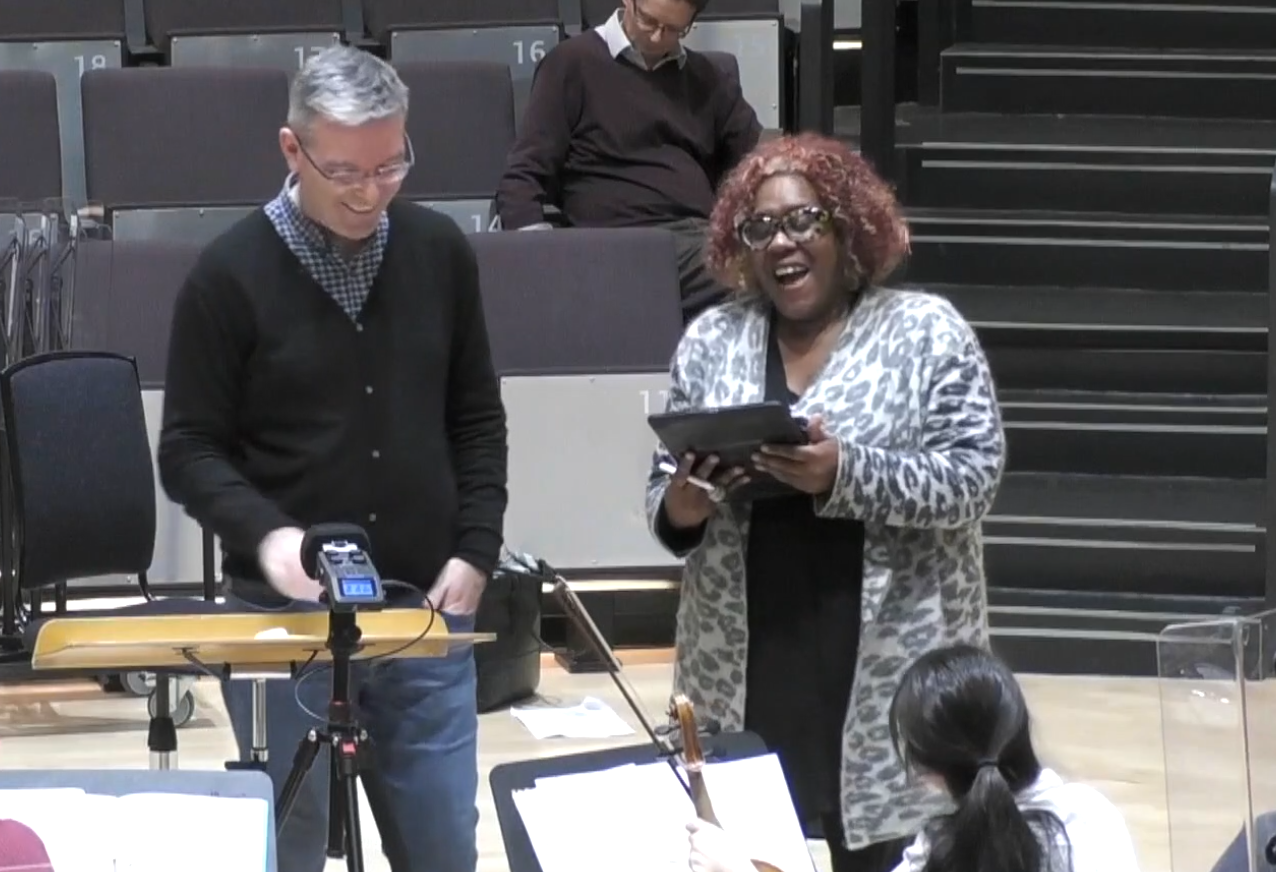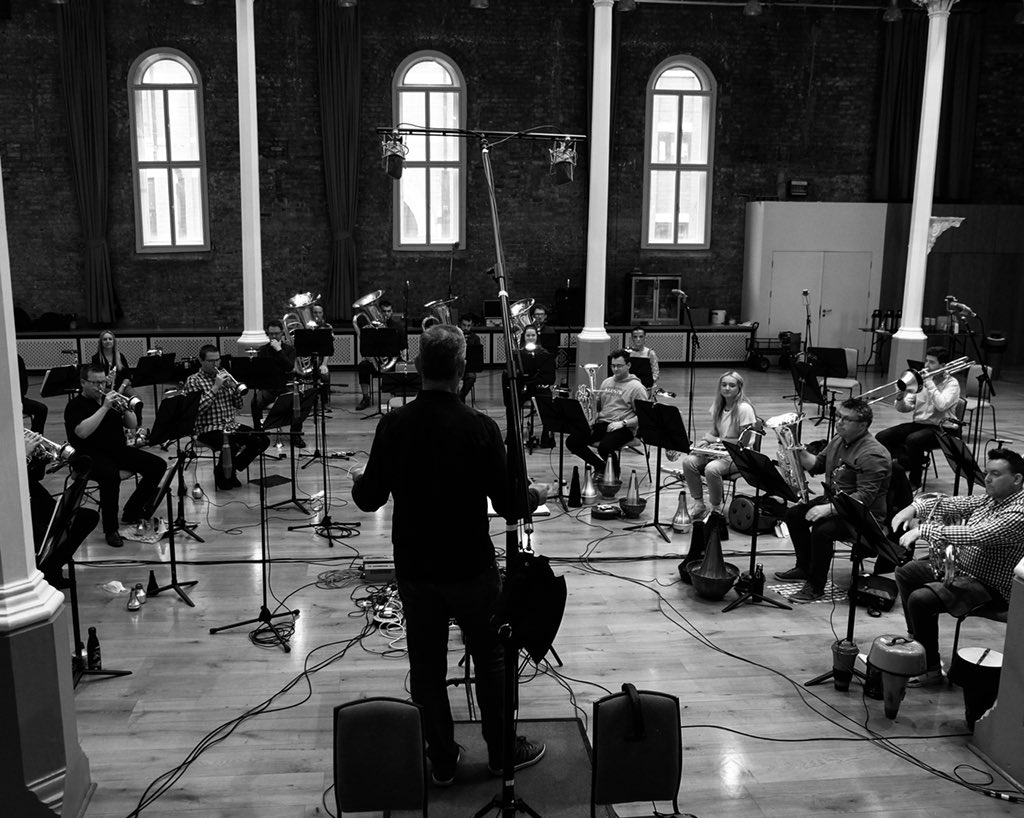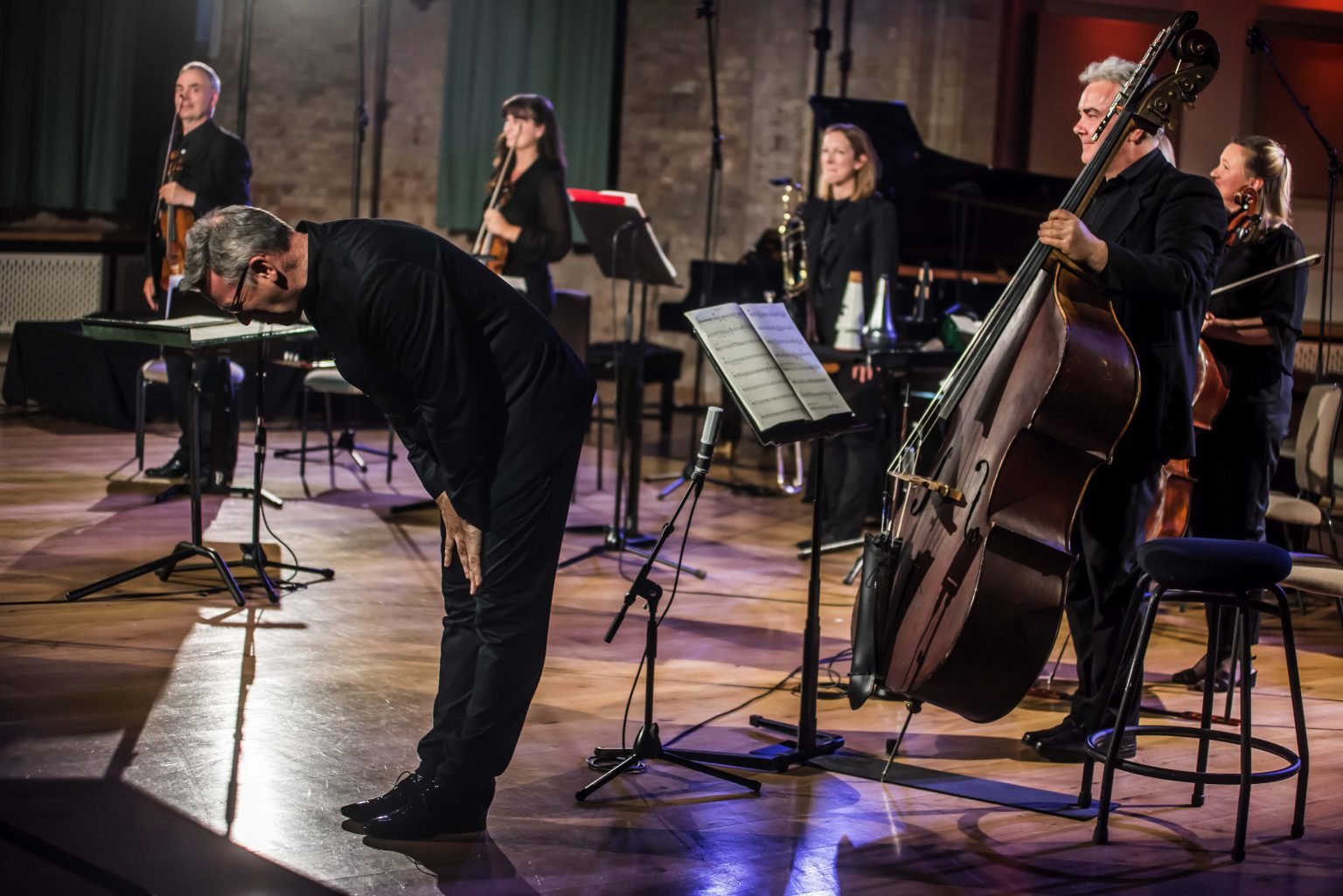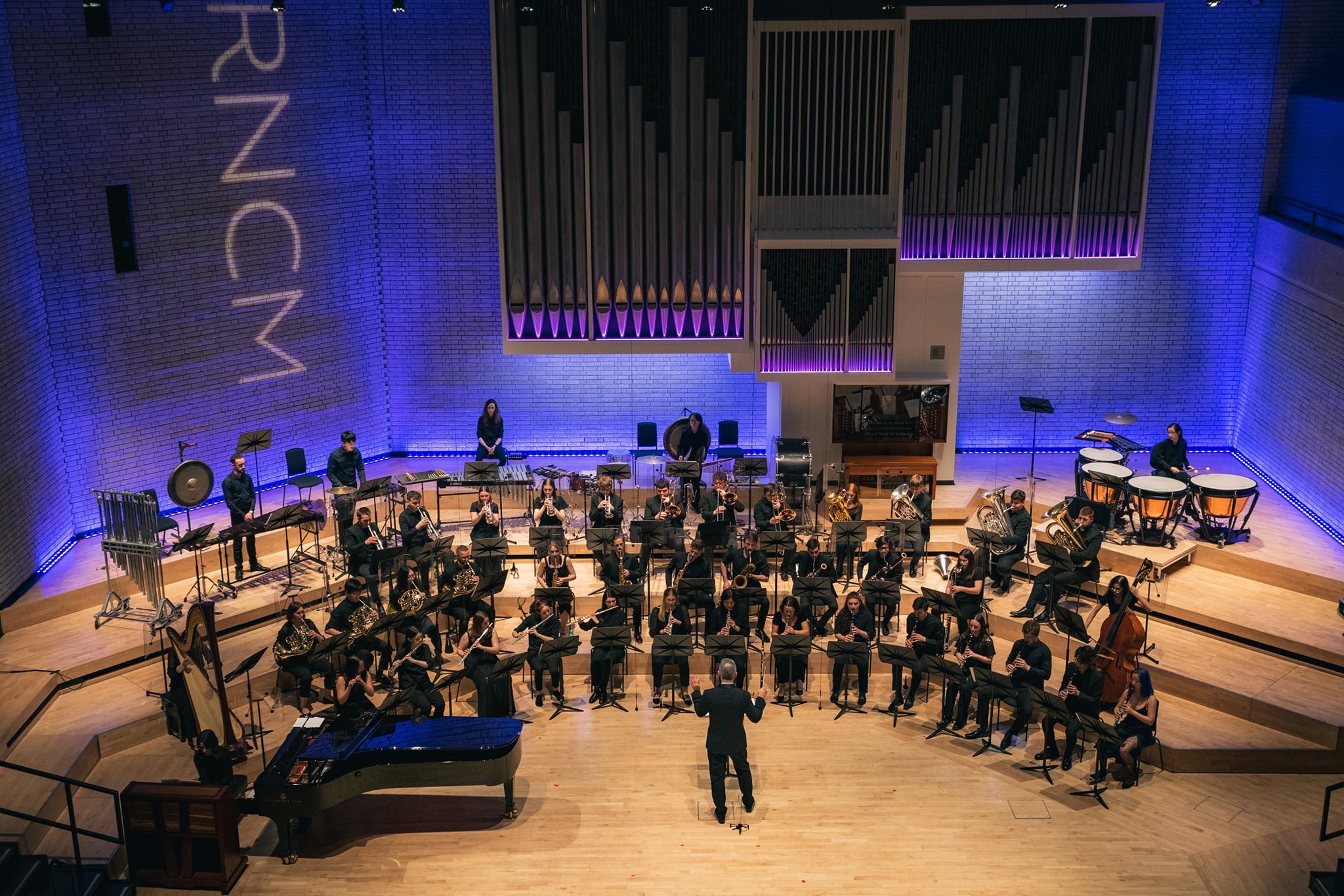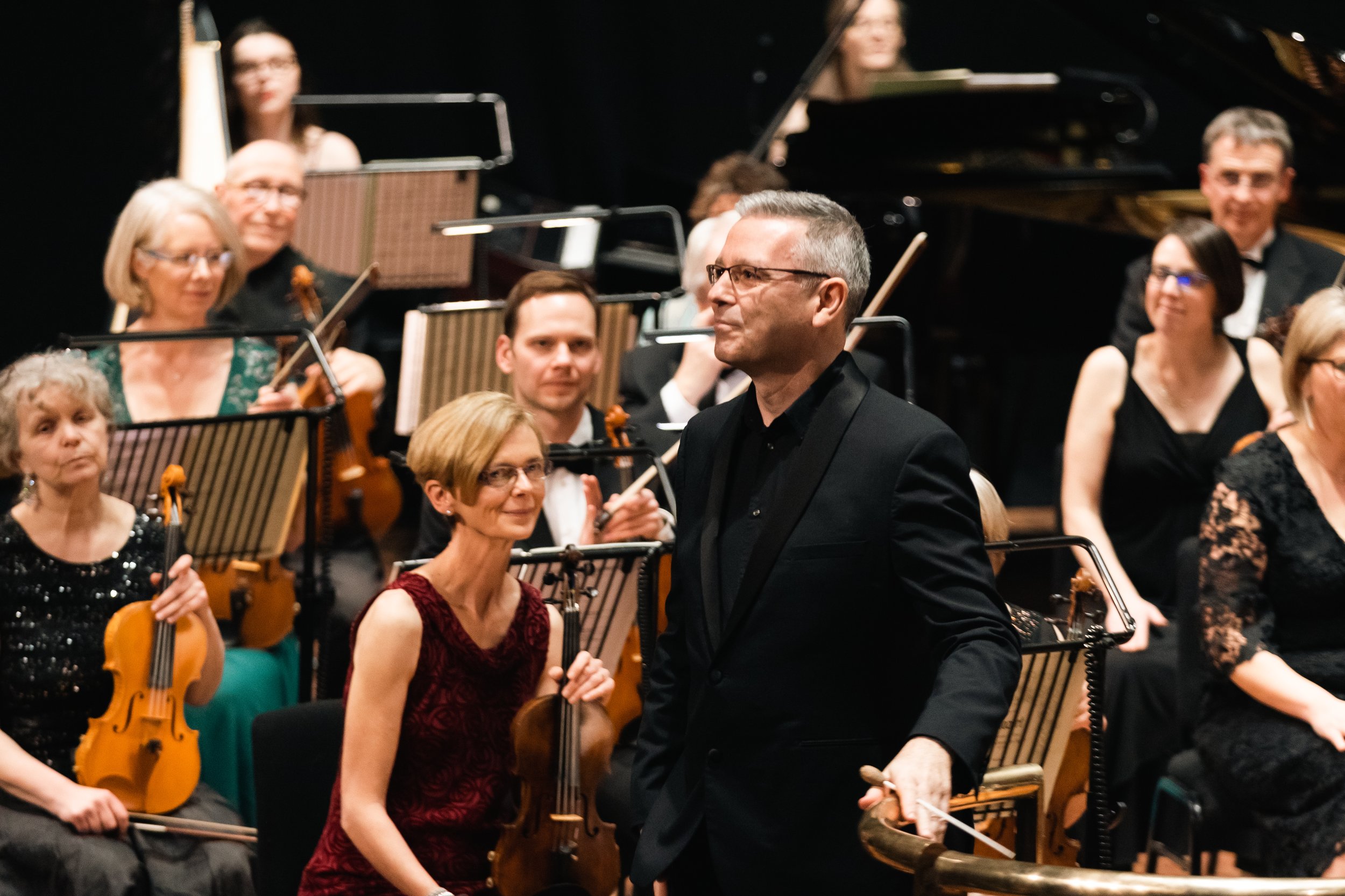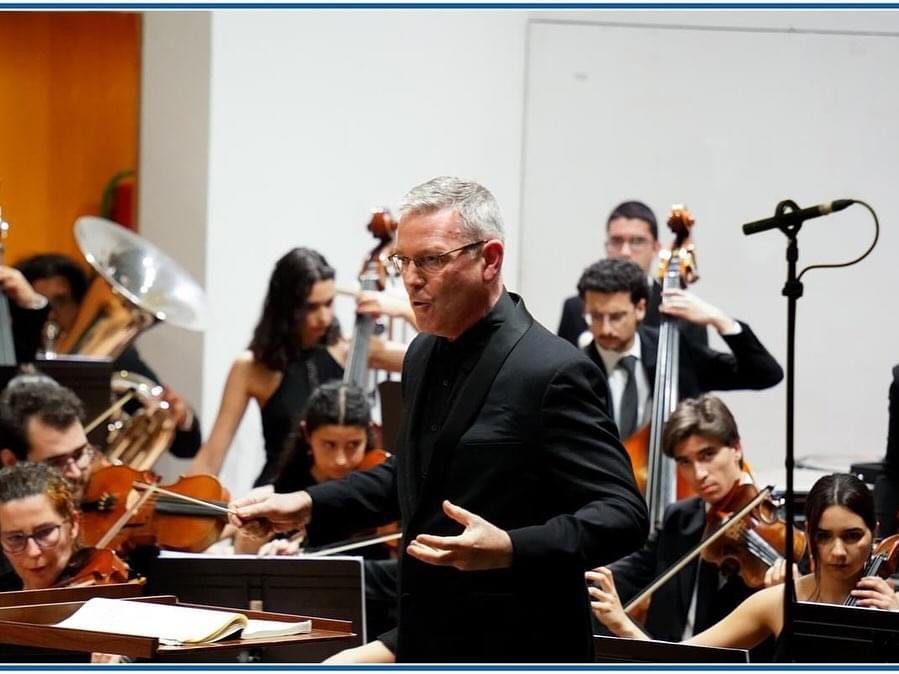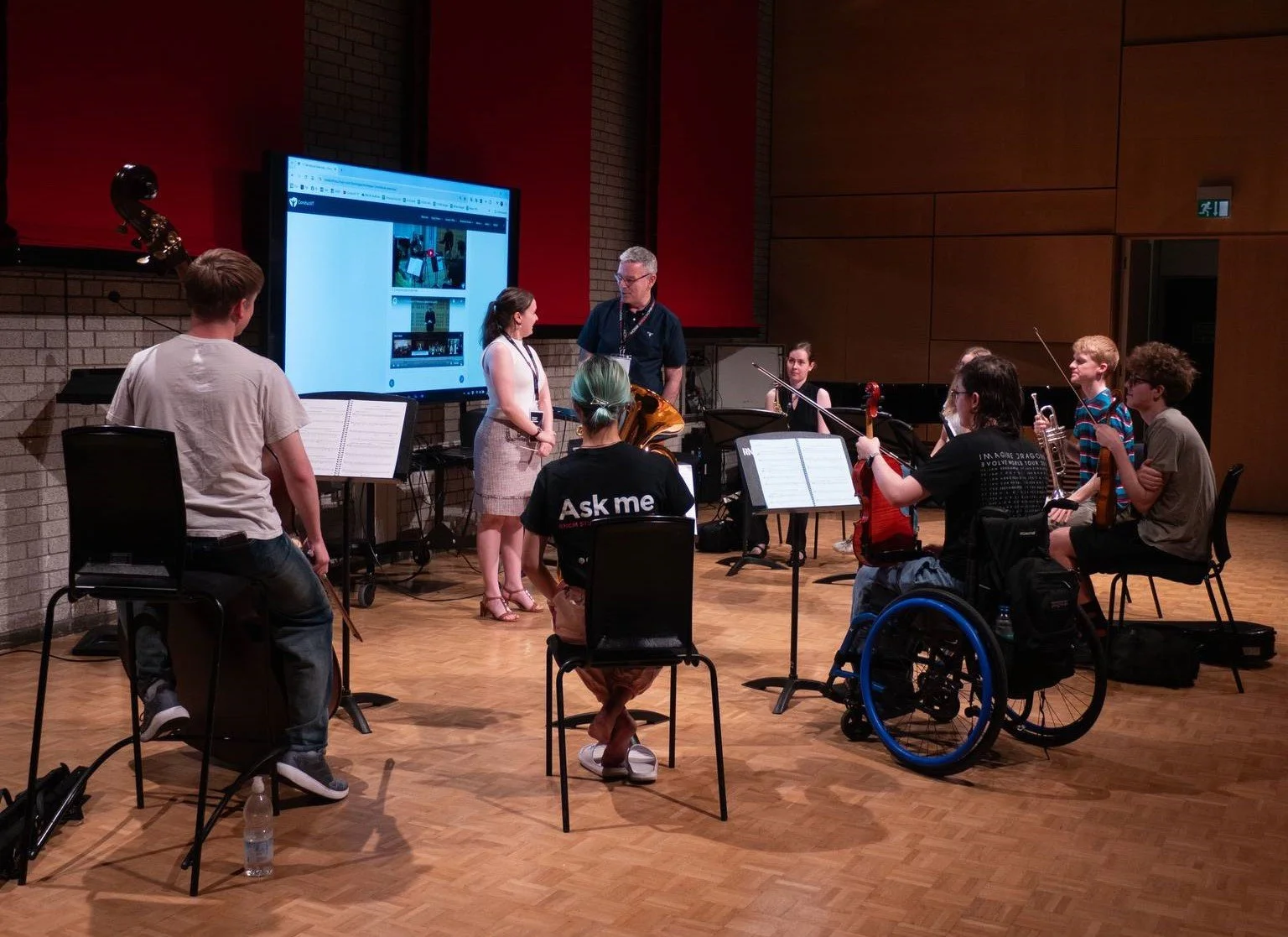about mark HERON
Mark Heron is a Scottish conductor known for dynamic and well-rehearsed performances across an unusually wide range of repertoire, and his expertise as an orchestral trainer.
As guest conductor he has appeared with the, BBC Philharmonic, BBC Concert, Philharmonia, Royal Liverpool Philharmonic Orchestra, Royal Scottish National Orchestra, Manchester Camerata, Psappha, Meininger Hofkapelle, Orquesta Sinfónica de la Región de Murcia, Pori Sinfonietta, St Petersburg Festival Orchestra and many more. He is the Music Director of the Nottingham Philharmonic and Professor and Head of Conducting at the Royal Northern College of Music. At the RNCM he works regularly with all of the College’s orchestras and ensembles and runs the world-renowned conducting programmes. Mark is the conductor laureate of the Liverpool Mozart Orchestra and for ten years was Director of Orchestras at the University of Manchester.
Dedicated to working with young musicians, in addition to his role at the RNCM, Mark has conducted ensembles from the Royal Academy of Music, Royal Conservatoire of Scotland, Escola Superior de Música de Lisboa, Tilburg & Maastricht Conservatories, the National Youth Wind Orchestras of Great Britain, Wales and Israel, Slovenian National Youth Orchestra, and many more.
Mark has a keen interest in contemporary music and has given world premieres of many important works. He has collaborated with leading composers such as Kalevi Aho, Sir George Benjamin, Sir Harrison Birtwistle, Unsuk Chin, Tansy Davies, Detlev Glanert, Heiner Goebbels, Anders Hillborg, Giya Kancheli, Magnus Lindberg, Sir James McMillan, Colin Matthews, Christopher Rouse, Kaija Saariaho, and Mark Anthony Turnage. In 2018 he gave the the world premiere of Adam Gorb's opera The Path to Heaven, and in 2006 the European premiere of American composer Daron Hagen’s opera, Bandanna. He has recorded dozens of CDs with the RNCM Wind Orchestra featuring contemporary wind repertoire on labels such as Chandos, Naxos, NMC, ASC and Polyphonic. Other recording projects have included CDs with the BBC Concert Orchestea and the Royal Liverpool Philharmonic and numerous radio broadcasts with BBC orchestras.
Mark studied at the RSAMD and the RNCM. Following a successful chamber music career and freelance work with many of the UK’s professional symphony orchestras, he undertook conducting studies at the RNCM and in master classes with Neeme & Paavo Järvi, Jorma Panula, and Sir Mark Elder. He worked with Sir Colin Davis and the London Symphony Orchestra on their mentoring programme for young conductors.
Alongside his conducting engagements, Mark is recognised as one of the world's foremost conducting teachers, and students of his have achieved notable success internationally. As well as his work across all of the RNCM's renowned conducting programmes, he developed an elite undergraduate conducting programme at the University of Manchester, is a visiting professor to the Royal Air Force and appears often as a guest at conducting courses and master classes all over the world.
CRITICAL REACTION
"Those great contemporaries, Jean Sibelius and Carl Nielsen, are composers of contrasting musical ethic and aesthetic. Each pose difficult questions for any conductor and musician. Through attention to detail, and careful shaping of argument and structure, Heron and the orchestra came through the test with flying colours."
"And to end: Debussy's La Mer, in which Heron ensured that every tiny detail, every flute flurry, every percussion stroke, every muted trumpet note was coloured and focused with pinpoint precision."
"Barber's 1st Symphony is a concert hall rarity, a piece written as one highly concentrated movement. It needs a conductor who can clarify its structure and relate the subtlety of its parts to the whole. Mark Heron certainly achieved this, particularly successful when handling the transitions between sections, as when the momentum of the opening spills over into the scherzo - which in turn tailed off into a plaintive oboe melody over rapt strings. He also imbued the ending, which comes full circle in a powerful coda, with a strong sense of inevitability."
"Sibelius's 7th symphony radiated total commitment and deep musical insight."
"Saturday’s performance [of Peter Grimes] had a powerful sense of emotional engagement with the morally ambivalent story and its cast of Suffolk townspeople. Mark Heron’s conducting was incisive and alive to the rich variety of Britten’s score. The famous ‘sea interludes’ were vividly atmospheric, ranging from the shimmering light effects of ‘Dawn’ to the elemental violence of ‘The Storm’"
"under Mark Heron's scrupulous guidance, the character [of Stravinsky's Rite of Spring] seemed balletic through and through. Negotiating an ever changing pulse with resolve, they went on to catch both the vitality of he seasonal dances and the solemnity of primitive sacrifice. Simply awesome."
"Mark Heron led a soulful and passionate performance of Brahms’s Fourth Symphony. The sound of the orchestra was astonishing and the pianissimo section in the slow movement was all the more beautiful for its contrast to the relentless vigour called for by Brahms"
"...the Nottingham Philharmonic under Mark Heron seems to reach greater heights of orchestral virtuosity."
"This was surely the best of the many orchestral collaborations seen at the prestigious La Mar de Músicas festival. The brilliance of Toumani Diabate of course made this possible, but it was as much due to the Orchestra Sinfonica de la Region de Murcia directed by Mark Heron who were outstanding in their sympathetic accompaniment."
"Heron is a conductor who clearly doesn’t want to act as a dictator towards the musicians, but rather as a catalyst between them and the composer's intentions"
"...the finale [of Tchaikovsky Symphony No.5] in particular was most impressive. Transitions between tempos were imaginative and convincing, there was some wonderful phrasing, and the optimistic climax well prepared and executed."
“In Saturday's performance under Mark Heron, Shostakovich's Seventh was vindicated as a masterpiece in its own right. A singular one for sure, but full of authentic expressive riches. The emotional ambivalence that was part of the composer loomed large in this performance, starting with the casual entry of the first movement's martial subject, and ending with the tonality of the work's final chords.”
"Despite his considerable experience, Mark Heron was conducting a Bruckner symphony for the first time. A composer like no other calls for a special approach and technique, and these were supplied in full measure. Above all it was the work's monumental features which were realised so effectively, as well as an enchantment recalling Schubert or Mahler. The many hushed openings to new paragraphs – "I need to take a deep breath," said Bruckner – were beautifully played. This music seemed to come not off the printed page but out of the surrounding ether."


